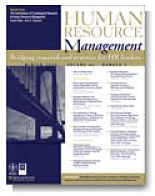A study of impending derailment and recovery of middle managers across career stages. (2000)

“Of particular relevance to … possible behavioural antecedents of hubris as indicated in linguistic markers, past experiences of success/failure etc. on the part of those coming to positions of business leadership.”
Frank Shipper, Salisbury State University, Maryland
John E. Dillard Jr., President of The Center for Strategic Management & Marketing, Tampa, Florida
Human Resource Management Journal, Winter 2000, Volume 39, Number 4, pp. 331-345.
“Why do some fast-track managers derail? Why do some recover and return to the fast track? This study investigates these questions by analyzing managerial skills and self-awareness during different career stages.
“The results suggest that … derailers overestimate their skills in comparison to successful managers at all career stages. The results imply that one can avoid derailment or recover from derailment by developing both self-awareness and specific managerial skills.” (From the Abstract.)
Dr Robinson (Visiting Senior Fellow at the University of Surrey Business School) is a member of our Advisory Group. He comments: this paper “is of particular relevance to at least two research projects the Trust is currently supporting into possible behavioural antecedents of hubris as indicated in linguistic markers, past experiences of success/failure etc. on the part of those coming to positions of business leadership.
“The paper’s conclusions with regard to self-awareness and the development of counter- balancing management skills are of particular interest. They also chime with the work of George Berguno, who at a recent Symposium organised by Surrey University, presented his findings on the experience of executive burnout as a collusive condition aggravated by organisational cynicism and low self-awareness in business organisations.
“His proposals for addressing/mitigating burnout and its consequences mirror the conclusions of Slipper et al.”
Access the paper here: A study of impending derailment






Leave a comment
Back to the top